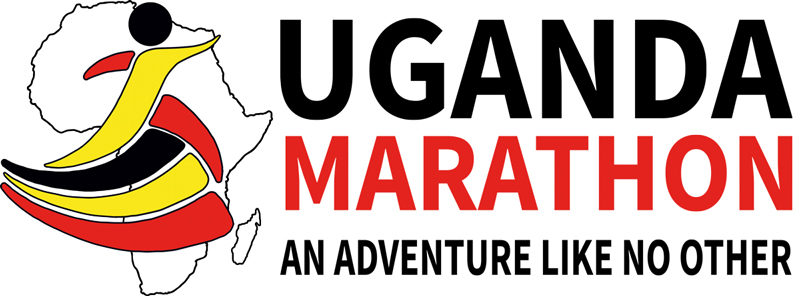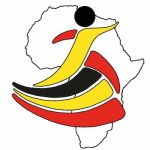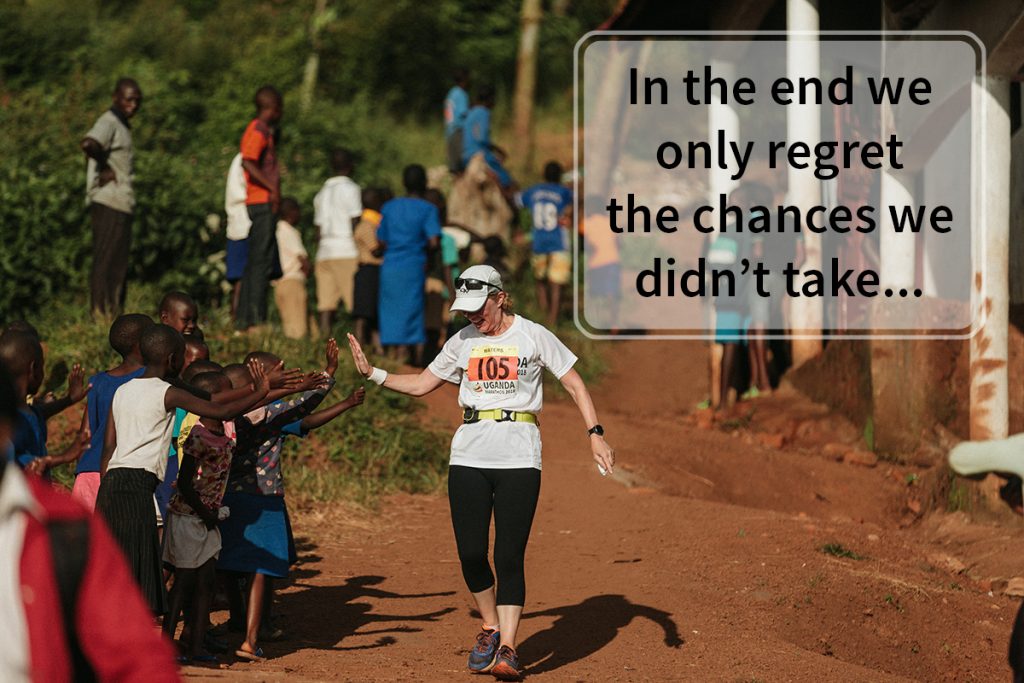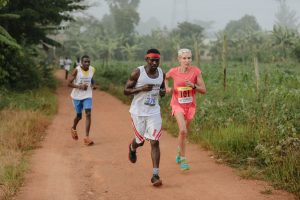
Here we interview runners who have participated in the Uganda Marathon, so they can share their stories and experiences from the 7-Day Adventure. After all, it’s their involvement which makes the week so special, from the impact they have on the Charity Projects, to the community feel they give to Race Day.
Jocelyn and Paul joined us all the way from Melbourne, Australia, as they love to combine running events with travelling and were especially intrigued by working with the Charity Projects too. They chat to us about this, the half-marathon and more!
1. What made you both sign up for the Uganda Marathon?
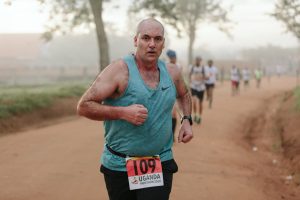
We had been to Rwanda several years ago (9 to be precise), and, as we had enjoyed our time there so much, and had had a wonderful guide who came from Uganda, we had been determined to come back some day and see that country. We enjoy combining running events with travelling, and have done a number of half marathons in places where we have wanted to travel, so we decided to see if there was perhaps a half marathon event in Uganda that would help inspire a trip to the country.
A Google search brought up the Uganda International Marathon, and, the more we read, the more intrigued we were. We both realised that the whole extra element of working with local projects was something we’d love to do, and would add enormously to the experience of participating in the running event and travelling in the country, and so we were hooked and signed up almost immediately. The hardest part was deciding in which projects to be involved, as each and every one sounded so thoroughly worthy. In the end, it was the Women’s Soroptimists for Jocelyn and the SUUBI Centre for Paul.
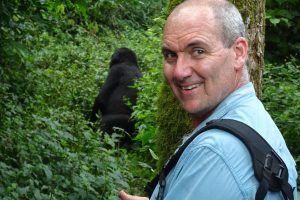
2. Was it what you expected?
In some respects, it was what we had expected and in others not. We didn’t know that, upon arrival, we would be divided up into clans, according to our projects, and would spend most of our time with these groups. At first, we were a bit taken aback that, as a couple, we would be separated for more than just the time spent working with our projects, but, in the end, we decided that this was actually a great idea, as it obliged and helped us to meet others and make new friends, which we certainly did.
We also had not expected that we would spend so much time with community initiatives other than our own, but again, we ended up being delighted that this was the case. It was an incredibly eye-opening experience, mostly because we realised how many local people, who do not have all that much themselves, have opened their hearts, their resources, and sometimes their homes to help others less fortunate. The amount of community spirit, selfless generosity, and true display of helping one’s fellow humans was humbling and made us feel ashamed at how selfish our own lives are. We were also filled with admiration for those foreigners who have returned to Uganda to start their own projects/children’s homes etc. If only those in leadership around the world could have half the kindness and empathy of those on the ground.
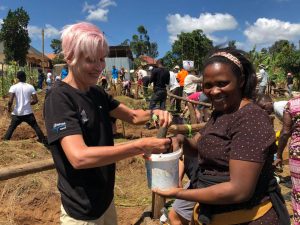
3. Could you tell us about your experience of the cultural immersion and volunteering element of the week. What were your highlights from these days?
Jocelyn: I was so happy with my choice of the Women’s Soroptimists. Fahdia and her lovely team of ladies were not only truly admirable for the work they do, but also fun company for the days we spent with them, and we had many good chats and laughs along the way. It is these kinds of interactions that reinforce that, despite differences in background and geo-locality, people are so much more essentially the same than different.
They joined us in building a food forest, and I was amazed how such elegant looking women ended up being absolute powerhouses in the field, certainly showing us up in their skills with the various gardening implements.
Our day at Fahdia’s house was easier going from a physical point of view, but, again, eye-opening at how much they are doing and the ingenious methods they have developed, using banana fibres, for making various products. In the afternoon, we visited a women’s prison and I was bowled over by this experience, as it was not at all what I had envisaged. The ladies greeted us in a communal yard area with song and dance, and then we all sat down together and they showed us the handicrafts they were involved in, while some told us their stories. We were joined by their Chief Warden and she was, to my amazement, a wonderful, warm-hearted woman, who seemed truly to care about the women, whom she saw as needing assistance, rather than punishment. She told us that she performed her job according to her religious values, and in the realisation that these circumstances could befall any of us. Indeed, the stories we heard made us realise that many of those who had been incarcerated were not hardened criminals, but often women who could not pay back loans, or had had the finger of blame pointed at them by some adversary, for example, an ex-husband, and had no legal representation to prove otherwise. It felt more like a women’s shelter than a prison, other than, of course, the lack of freedom.
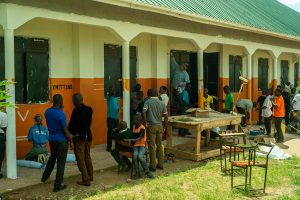
Paul: We were greeted at the SUUBI Centre by the students playing musical instruments and dancing, already giving us an insight into how talented and skilled they are. The tour of the Centre that followed included a science laboratory, a computer room, a library, two classrooms, a workshop where they make their own table and chairs, and a sewing room where they make their own sheets – all very impressive. Our job for the day was to paint a wall and we all left feeling like we would like to do more. We also saw the SUUBI Centre coffee plantation and their clinic, where HIV testing is for free – again a model of entrepreneurship and self-sufficiency. David and the children’s parents have shown what teamwork can do for building a village for students in the area for years to come.
Other than this day, my favourite “cultural immersion” experience of the week was the Kids Run Wild day, which was 100% all about fun. I met a 7-year-old girl, Vanessa, from a village that she told me was a long way away, and we spent the day hanging out together, joining in the games. She amazed me with her confidence, and, like the other kids, her huge smile and joyful, enthusiastic willingness to participate in everything.
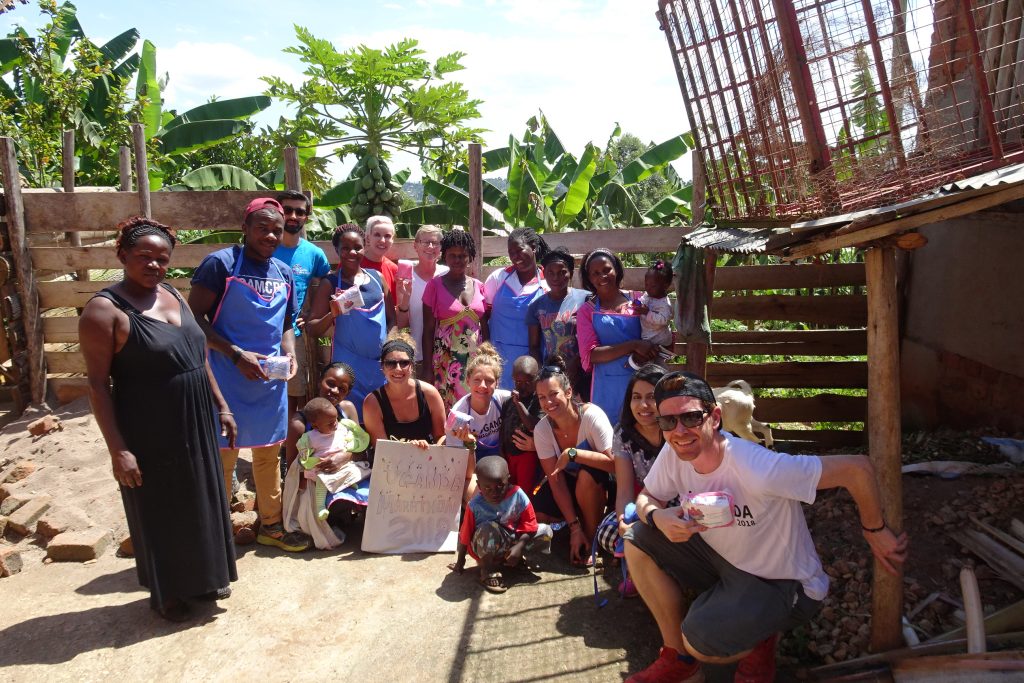
4. Could you tell us about your experience of Race Day? What was it like to run the half-marathon through rural Uganda?
Jocelyn: There is no doubt that this is one of the toughest half marathon courses out there, not only due to the hilly nature of the course but also the altitude and the heat (added to the jetlag of having travelled from Australia). Not to mention that, like many others, our stomachs were suffering adverse effects from the malaria pills we were taking.
However, it was definitely one of the best events in which I have participated for the fantastic, friendly atmosphere out on the course. There was a great feeling of camaraderie, not only amongst the foreigners, who had spent the week bonding with one another, but also with the locals, even though we were meeting them for the first time. I received so much encouragement and friendliness from every single person whom I passed, or who went past me. One time, a guy came running past me and I said “well done, good running”, and he immediately stopped dead in his tracks, with a beaming smile, waited for me, and then ran with me for a few minutes, chatting, before shooting off again. The support from the sidelines was also amazing, both from the spectators and the helpers at the aid stations. As I had badly sprained my wrist at the “Kids Run Wild” day, I couldn’t open the water bottles, but, when I asked them to do this and they saw my swollen wrist, not only did they rush to open the bottle, but invariably also showered me with concern and offers of other help.
I thought that it was an excellent course in its varied terrain and scenery, the wonderful views, and the experience of running through the villages. The dirt roads, for the most part, offered a good running surface, so one doesn’t have to be a cross-country expert, although those who like trail running will also be happy that it is mainly off tarmac.
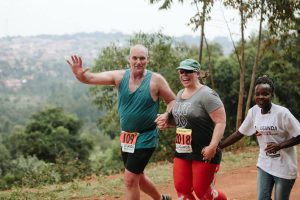
Paul: The highlight of the run for me was the first 2km, and then we hit the first hill! Just kidding, but they didn’t stop from there and I really felt the altitude and heat. I have to commend and thank the local volunteers who navigated us through the towns and greeted us at aid stations – it definitely helped to take my mind off the pain, as did the kids cheering from the sidelines. I really enjoyed running with the Ugandan runners, although, as expected, they showed us up with their talent.
Another heart-warming experience at the event was seeing three guys after the race who were wearing running tops that I had donated to the Masaka Running Club. They were very distinctive, being from Half Marathon events I had done in Bhutan, Iceland and Jordan and it was strange, in a wonderful way, to see them being worn here in Uganda. All were slightly on the tight-fitting side for me, so had never been worn, and they looked much better on their new owners.
5. Finally, for each of you, what was your favourite memory from the Adventure?
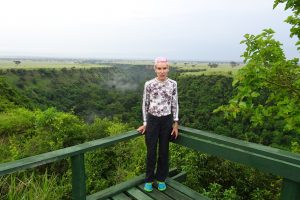
Jocelyn: I have so many wonderful memories that I really don’t think that I can pick out one. Other than all the time spent with the projects, I did enjoy the local food and dancing shows. The dancing show at the Brovad Hotel the night before the event was exceptional. The food at the hotel was very good too, but my favourite meals were the local staples of rice, posho, beans, peas in gravy, etc (all in super-generous portions) that we were given on our volunteer days – simple, but delicious and nutritious (and it took me back to my childhood in South Africa).
The Uganda International Marathon week was a special experience in every aspect. We loved the travels we did before and after the race (Kampala, chimpanzee tracking, Queen Elizabeth National Park, and gorilla tracking), but our experience and memories of Uganda would not be as deep and rich without the week spent in Masaka. It made us feel so much more in touch with the country than if we had just been regular tourists, and made it truly unforgettable. We definitely plan to go back in the future.
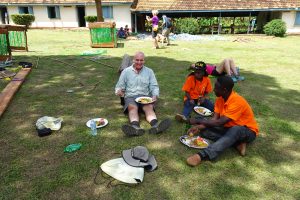
Paul: I must say that I really enjoyed the nature walk we did as an optional extra activity the day before the event. Our guide was extremely knowledgeable and gave us a huge amount of information on local culture, the town of Masaka, and the plants, insects and birds to be found in the surrounding bushland. We got to see another side of the town, and were all astounded to hear how many uses there are for a banana plant.
